Growing Nurse Leaders

The Emory Nursing Experience (ENE) provides strong evidence that being part of the Emory Nursing Learning Center in Decatur is an excellent idea.
In July 2021, the ENE moved from Executive Park, an office complex near the Emory campus, into newly renovated space at the learning center. The space and amenities there have further enhanced the ENE’s ability to provide continuing education for professional nurses.
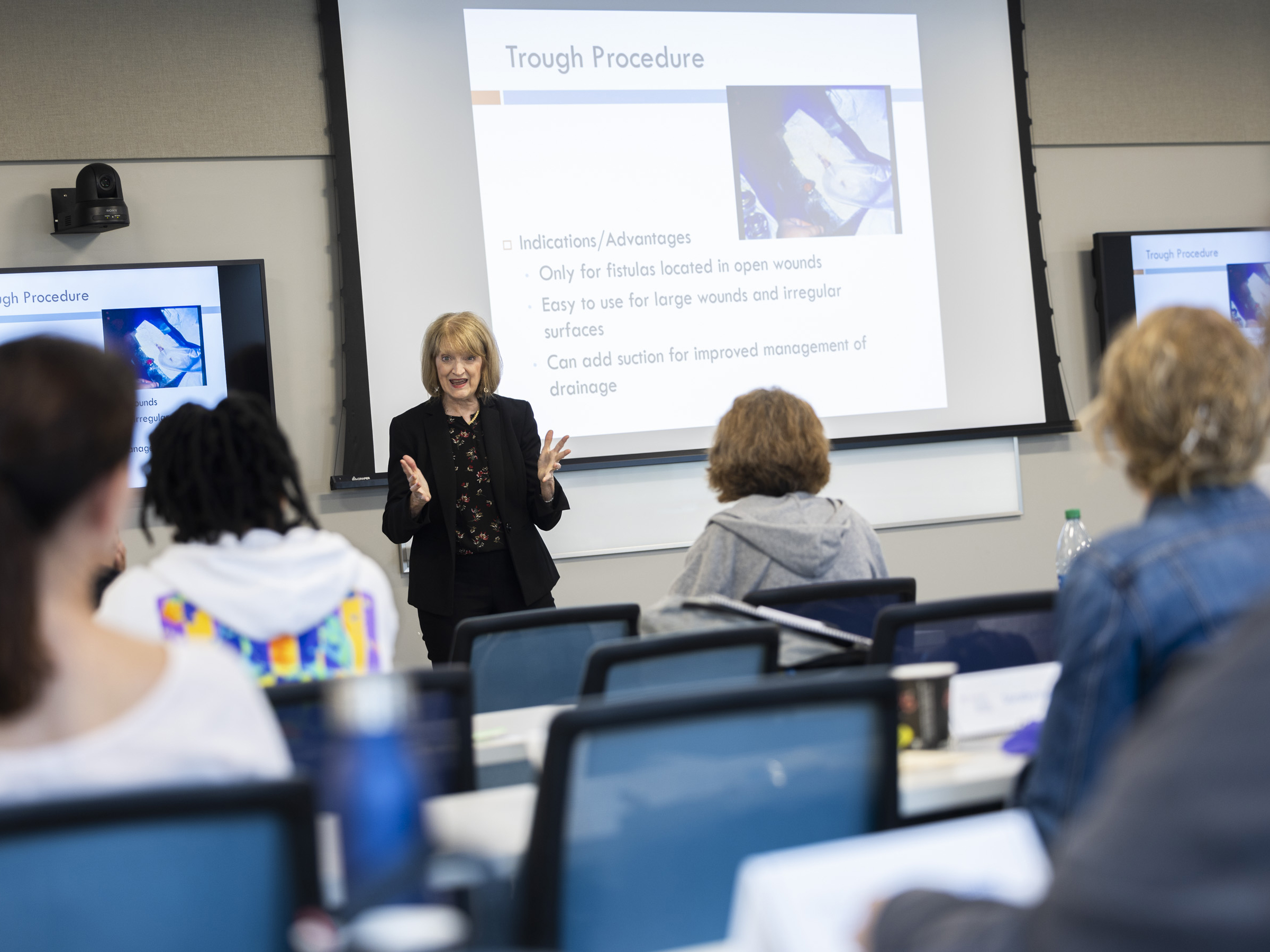
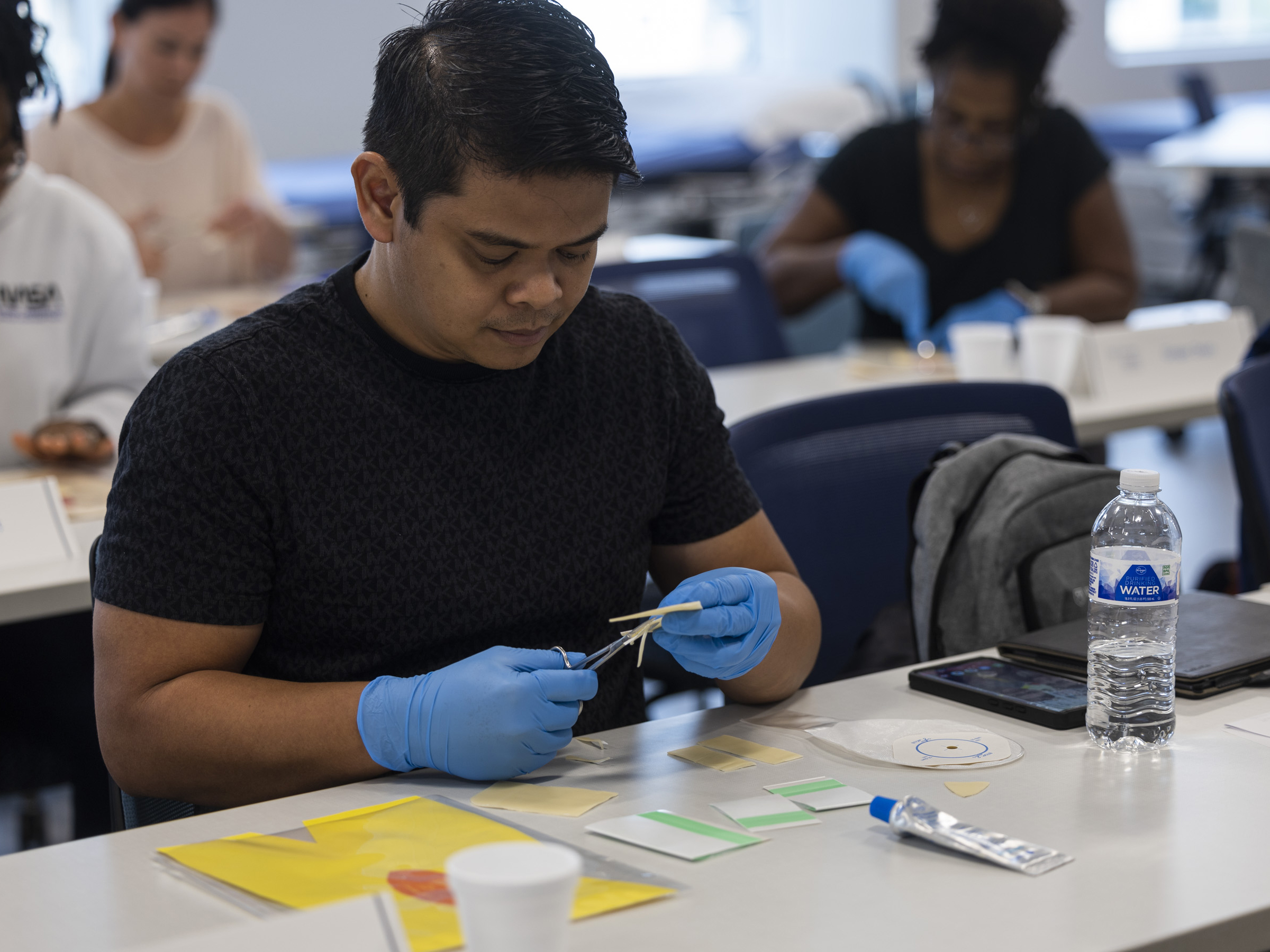
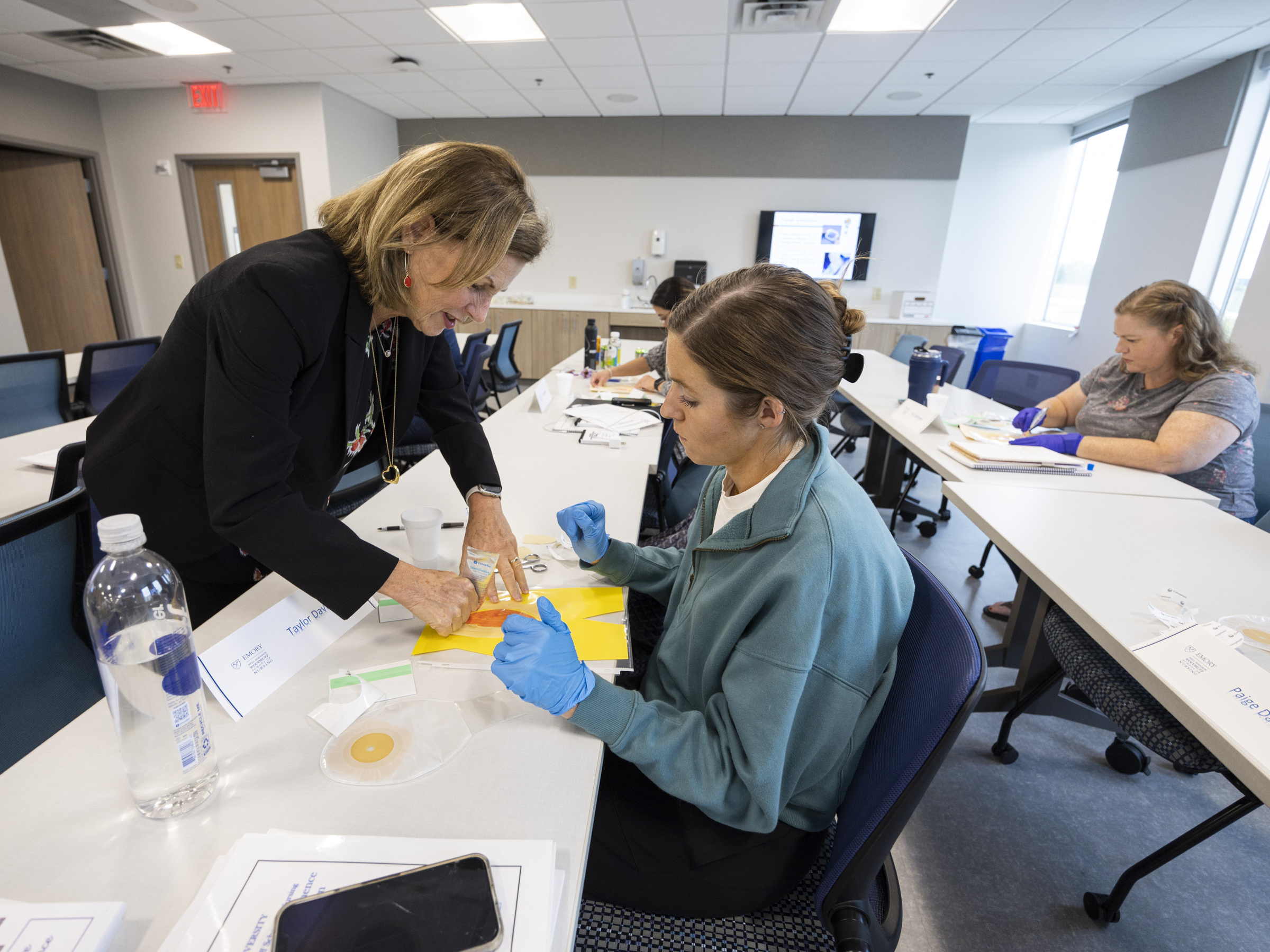
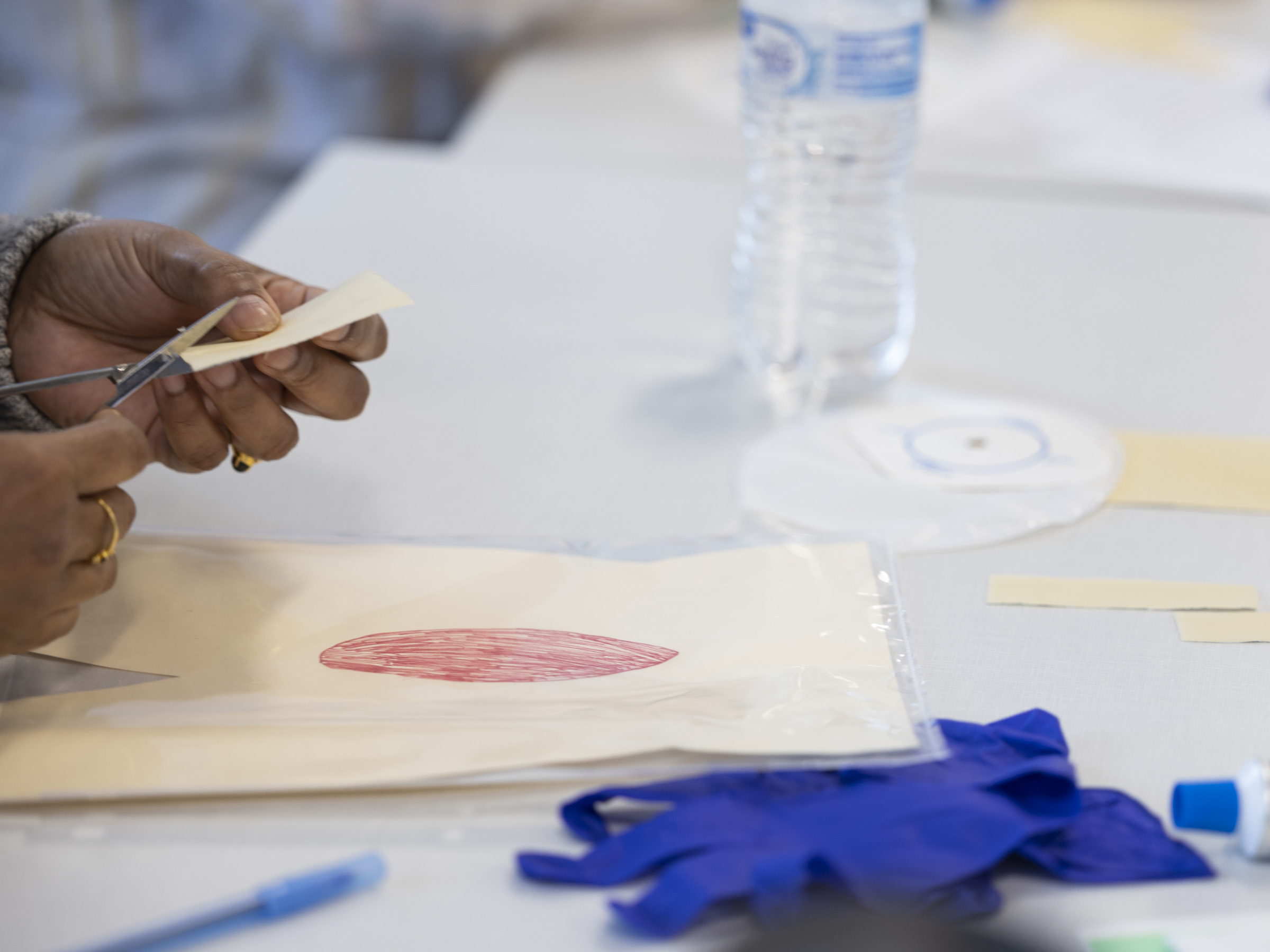
“Our mission has always been to provide quality education opportunities for nurses,” says Laika Steiger, MBA, FACHE, senior assistant dean of transformative clinical practice operations at the School of Nursing. “They come to the ENE for a variety of reasons: for continuing nursing education credit to renew their license, to stay on top of what’s new, but most importantly to learn something that enables them to be better at what they do, in their current job or a new one.”
The course catalog has evolved to reflect current best practices and the changing needs of nurses. Naturally, numerous courses have focused on COVID- 19-related subjects, especially early in the pandemic. A new one-credit course, inspired by the pandemic and the social justice reckoning that followed George Floyd’s death in May 2020, examines the historical foundations of racial disparities in U.S. health care.
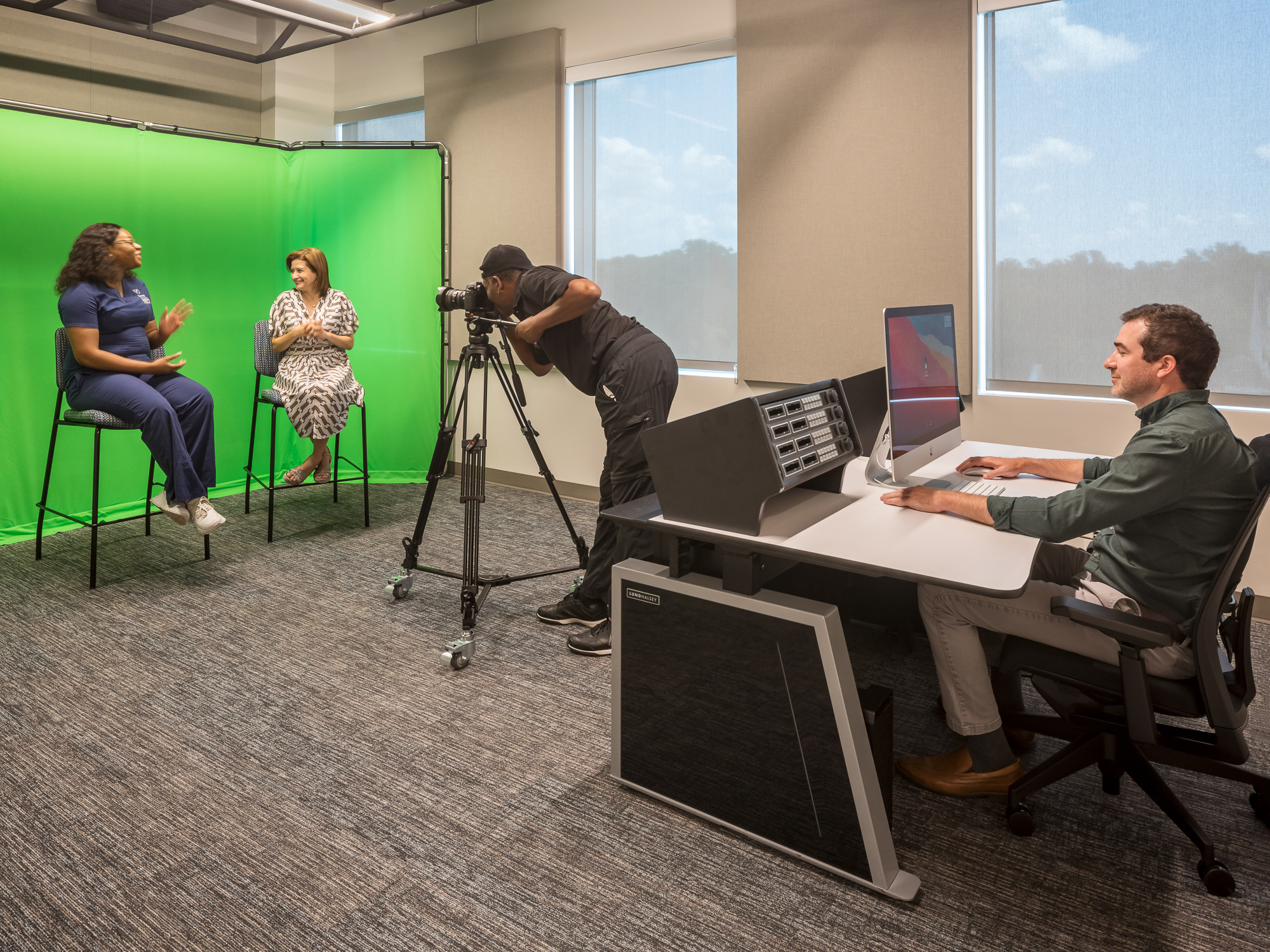
Accredited in 1976, Emory’s acclaimed Wound, Ostomy, and Continence (WOC) certification program is the most successful continuing education program offered by the ENE. It is one of seven such accredited programs in the United States. Emory faculty — particularly Dorothy Doughty, MN, RN, CWOCN, FAAN — pioneered the field. The program has a stellar word-of-mouth reputation among nurses, nationally and around the world.
Participants first complete their classroom courses online, asynchronously, at their own pace. “I was very impressed with how rigorous and in-depth the program was,” says Marty Costa, DNP, MSN, RN, WON, a recent WOC program graduate from Roseville, California, who teaches full time at Chamberlain University. “As an instructor, I really appreciated how well Dorothy laid out the information and made the concepts easy to understand.” Both the lessons and an accompanying podcast — which enables students to reinforce lessons while on the go — were recorded in the ENE’s recording studio. The Emory Nursing Experience is designed to look and feel like a conference center. Amenities include classrooms, conference rooms, a media recording studio, and open and private work spaces.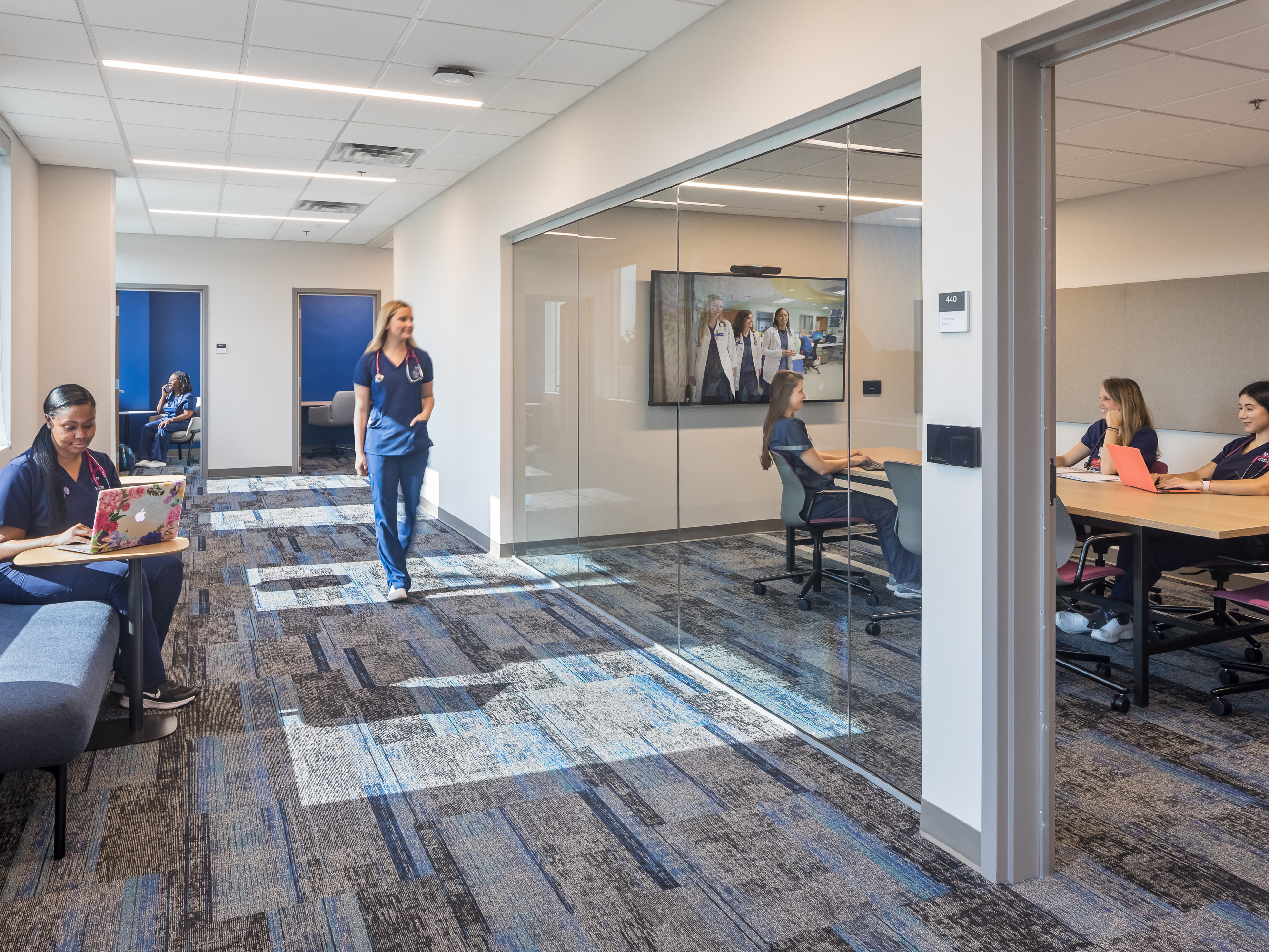
Participants then complete their program at the ENE with an onsite Bridge Week, which allows them to network with their fellow WOC students, meet instructors, clarify concepts, and perform hands-on skills and competencies.
The ENE’s design “recognizes that our students are professionals who have lives outside of our building,” says Steiger. Outside of the highly interactive classroom — well equipped for Zoom presentations with six monitors and multiple microphones for audience participation — are invaluable “touchstone spaces.” Students and presenters retreat to these nooks to discreetly take calls, check email, and participate in their own Zoom staff meetings. There’s even a nursing room for new mothers, a feature utilized and highly praised by recent participants.
The ENE’s location — on the fourth floor of the Emory Nursing Learning Center in downtown Decatur — has been a major selling point of the ENE from the start. Out-of-town students can take MARTA rail from the Atlanta airport to the Decatur station, just two blocks from the ENE and its partner hotel, the Courtyard by Marriott. The hotel provides breakfast, a study room, and a shuttle. Students appreciate having the hotel and multiple restaurants close to the ENE.
“The whole city of Decatur has been so accommodating,” Steiger says. “They’re always asking, ‘What do you need? What can we do for you?’ Our students absolutely love it, and it has made a world of difference for the ENE to be in this space.”
FORGING NEW PARTNERSHIPS
As word of the ENE has spread, more School of Nursing faculty and Emory Healthcare nurses have partnered with the ENE on new grant-driven training programs and taken advantage of its expertly designed spaces.
For example, the ENE teamed with School of Nursing associate professor Trisha Sheridan, DNP, WHNP-BC, SANE-A, SANE-P, FAANP, on an initiative to increase the number of certified sexual assault nurse examiners in Georgia. The training includes online courses, an in-person clinical skills experience at the ENE, continuing education, and certification prep courses so that nurses can earn and maintain their certification. The grant covers all costs for participating nurses. “We can make a big impact on the community by providing this course and not allowing finances to be a barrier to entry,” Steiger says.
Assistant professor Nicholas Giordano, PhD, RN, and his interdisciplinary team, developed a new initiative on nurse resiliency and well-being. The ENE created a central platform for all curricula as well as individual interactive online courses, recorded by subject-matter experts in the ENE’s recording studio. A Health Resources Services Administration grant will ensure the material is provided for free to nurses across Georgia so they can become wellness champions in their respective communities.
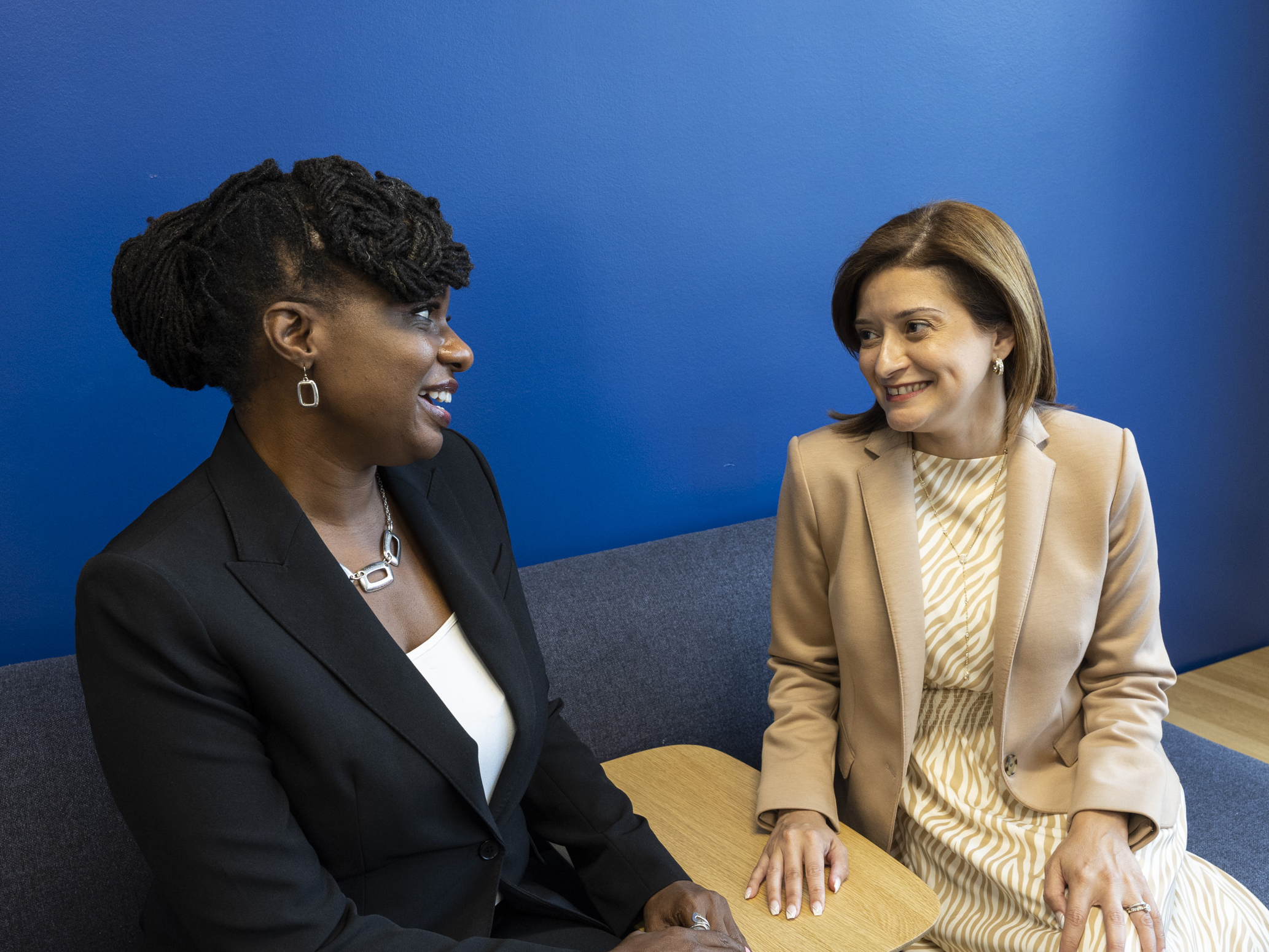
Cynthia Harris (left) directs the clinical placement program for School of Nursing students. Laika Steiger oversees ENE operations for the nursing school in partnership with Emory Healthcare colleagues.
Cynthia Harris, MHA, BSN, RN, CPC, director of clinical placement for the School of Nursing, values having her office in the ENE. “It’s wonderful to have a space that students can feel is their own and where we can meet with them face to face,” she says. “It allows us to create a better relationship with them and make a positive impression, so they’ll want to come back at some point and serve as a preceptor.”
The opening of the ENE has been a lifesaver for Carrie McDermott, PhD, APRN, corporate director of nursing professional practice for Emory Healthcare. McDermott directs the New Graduate Residency Program, a yearlong series of monthly four-hour seminars for nurses in their first year on the job. In 2021, 512 residents participated in the program, split into 17 cohorts. The program had outgrown its previous spaces; the ENE was the perfect venue for hosting each seminar’s presentations from subject-matter experts and small-group reflective practice exercises.
The ENE has certainly made a positive impression on residency participants. “It’s really important for these nurses who are entering their career at Emory Healthcare to be able to take classes in such an impressive, state-of-the-art facility,” McDermott says. “They can see how Emory Healthcare is showing so much pride in nursing and making such a big investment in them.”








